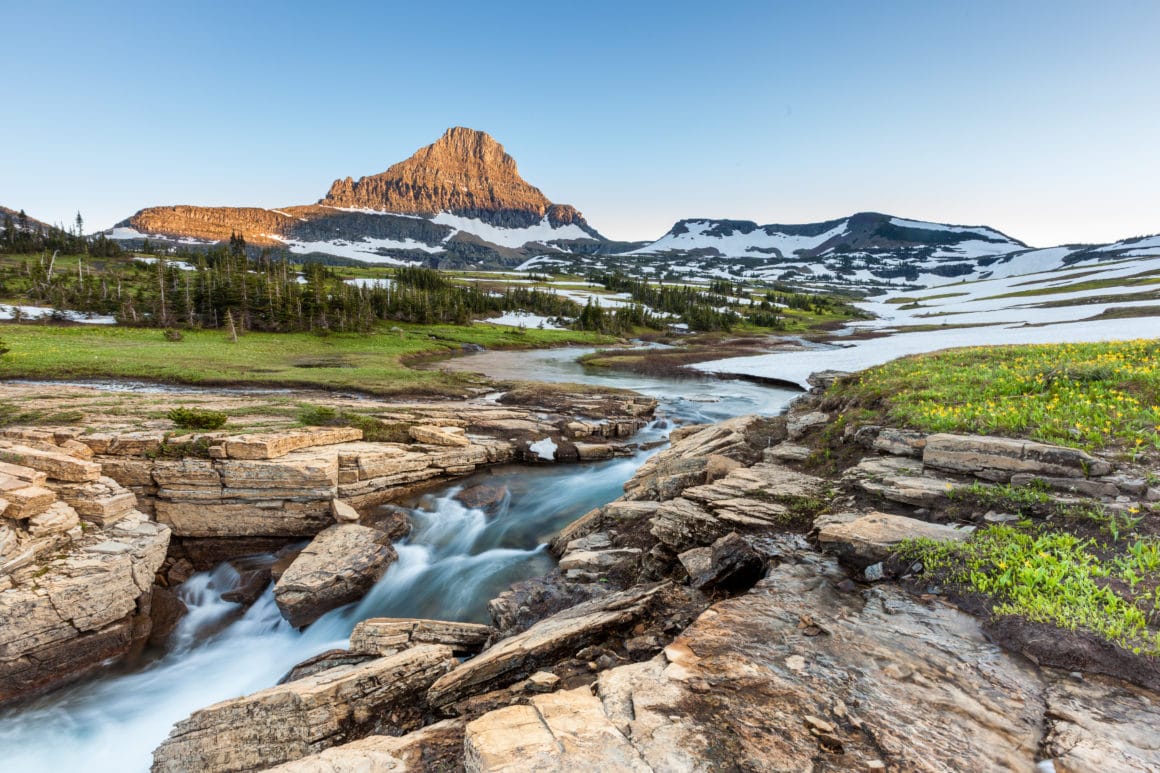Introduction
Glacier National Park, located in the breathtaking Rocky Mountains of Montana, is a hiker’s paradise. With over 700 miles of trails, ranging from easy walks to challenging backcountry treks, it offers something for every type of adventurer. Whether you’re looking to experience serene alpine meadows, dramatic mountain vistas, or pristine lakes, this guide will provide you with essential tips for exploring the best hikes in Glacier National Park.
Planning Your Hikes
1. Research and Choose Your Trails
Before you set out, spend some time researching the trails that interest you. Glacier National Park offers a variety of hikes, such as:
- Hidden Lake Overlook: A moderate 5.4-mile round-trip hike offering stunning views of Hidden Lake and the surrounding peaks.
- Highline Trail: A strenuous 11.8-mile trek that provides breathtaking vistas and a chance to see diverse wildlife.
- Grinnell Glacier Trail: A challenging 11-mile hike that rewards you with views of one of the park’s remaining glaciers.
2. Check Trail Conditions
Trail conditions can vary due to weather, wildlife activity, and maintenance. Check the park’s official website or visit a ranger station for the latest updates on trail conditions and closures.
3. Understand Your Limits
Make sure the hikes you pick are right for your fitness level and experience. If you’re new to hiking or getting used to the air, start with shorter, easier trails. As you get stronger and more confident, work your way up to walks that are harder.
Preparing for Your Hike

4. Pack the Essentials
Bring the necessary gear to ensure a safe and enjoyable hike. Essentials include:
- A detailed trail map or GPS device
- Plenty of water and high-energy snacks
- Weather-appropriate clothing, including layers and rain gear
- Sturdy hiking boots with good traction
- Sunscreen, sunglasses, and a hat
- A first-aid kit and bear spray
5. Start Early
Starting your hike early in the day has several advantages. You’ll avoid the midday heat, encounter fewer crowds, and have a better chance of spotting wildlife. Early starts also provide ample time to complete longer hikes before nightfall.
6. Hike with a Buddy
Being safe and having more fun are both increased when hiking with a friend or group. If you like hiking by yourself, let someone know what you’re going to do and when you expect to be back.
On the Trail
7. Follow Leave No Trace Principles
Follow the “Leave No Trace” rules to protect Glacier National Park’s natural beauty. This means taking out all of your trash, staying on the trails, and being kind to animals.
8. Stay Bear Aware
Gray and black bears both live in Glacier. Bears will be scared off if you stay alert and make noise. Carry bear spray as well. Bear spray should be easy to get to and known how to use.
9. Pace Yourself
Hiking at a comfortable pace ensures you conserve energy and enjoy the journey. Take regular breaks to rest, hydrate, and soak in the scenery.
10. Be Prepared for Weather Changes
The weather in the mountains can change quickly. Bring extra clothes and waterproof gear with you in case it rains, winds, or gets cold. Before you leave, you should always check the weather report.
Must-See Hikes in Glacier National Park
11. Avalanche Lake Trail
This moderate 4.5-mile round-trip hike takes you through a lush forest and along Avalanche Creek, ending at the stunning Avalanche Lake surrounded by towering cliffs.
12. Iceberg Lake Trail
A moderately strenuous 9.6-mile round-trip hike leading to Iceberg Lake, where floating icebergs can be seen even in midsummer. The trail offers breathtaking views of alpine meadows and towering peaks.
13. Ptarmigan Tunnel Trail
This challenging 10.7-mile round-trip hike features a tunnel through the mountain and spectacular views of Ptarmigan Lake and the Belly River Valley. It’s a must-do for experienced hikers seeking a unique adventure.
14. Siyeh Pass Trail
A strenuous 10.3-mile hike that traverses alpine meadows and rocky terrain, offering panoramic views of the park’s rugged landscape. The trail descends into the stunning Sunrift Gorge.
15. St. Mary and Virginia Falls Trail
A moderate 3.6-mile round-trip hike that takes you to two beautiful waterfalls. The trail is well-maintained and perfect for families and less experienced hikers.
Conclusion
Exploring the best hikes in Glacier National Park is a rewarding experience that showcases the park’s incredible beauty and diverse landscapes. By planning ahead, packing the right gear, and respecting the natural environment, you can ensure a safe and memorable adventure. Whether you’re a seasoned hiker or a first-time visitor, Glacier’s trails offer endless opportunities for discovery and inspiration.
FAQs
Q1. What is the best time to hike in Glacier National Park?
The best time to hike in Glacier National Park is from late June to early September when the trails are usually snow-free, and the weather is more predictable.
Q2. Are dogs allowed on trails in Glacier National Park?
Dogs are not allowed on most trails in Glacier National Park to protect wildlife and preserve the natural environment. They are permitted in developed areas, campgrounds, and on roads.
Q3. Do I need a permit to hike in Glacier National Park?
No permit is required for day hikes. However, if you plan to camp overnight in the backcountry, you will need a backcountry camping permit.
Q4. Can I swim in the lakes in Glacier National Park?
Yes, swimming is allowed in the park’s lakes, but be prepared for very cold water, even in the summer. Exercise caution and avoid swimming alone.
Q5. What should I do if I see animals on the trail?
Keep a safe distance from animals you see and don't get close to them or feed them. If you see a bear, move back slowly and don't make rapid moves. If you have to, use bear spray.



